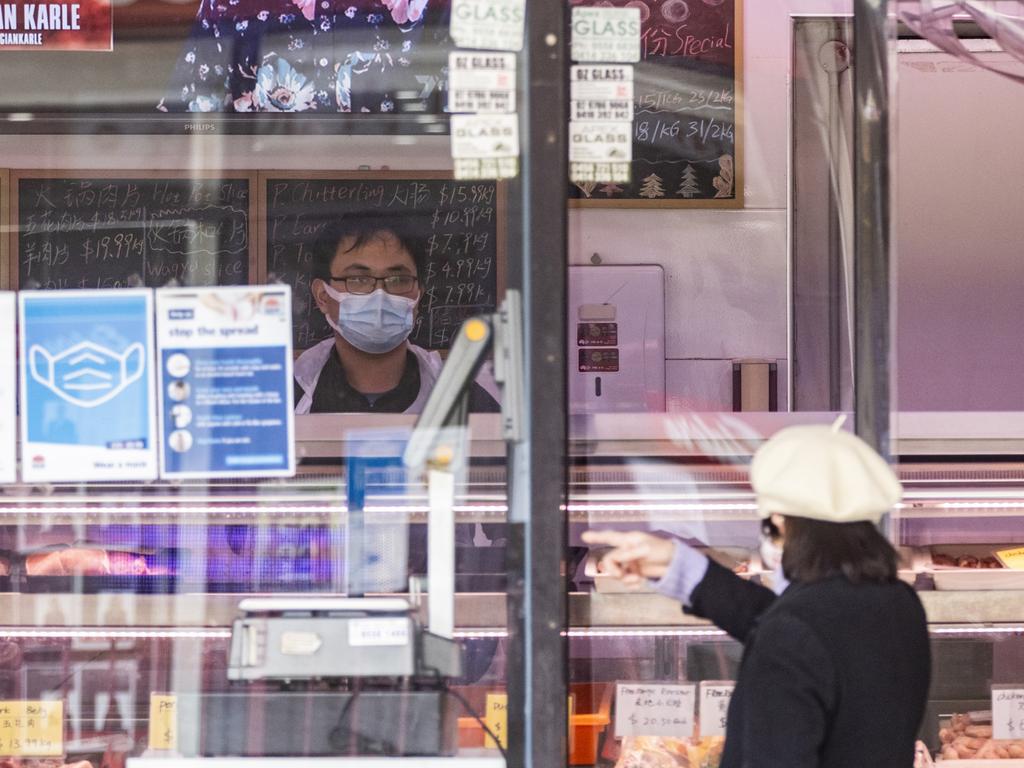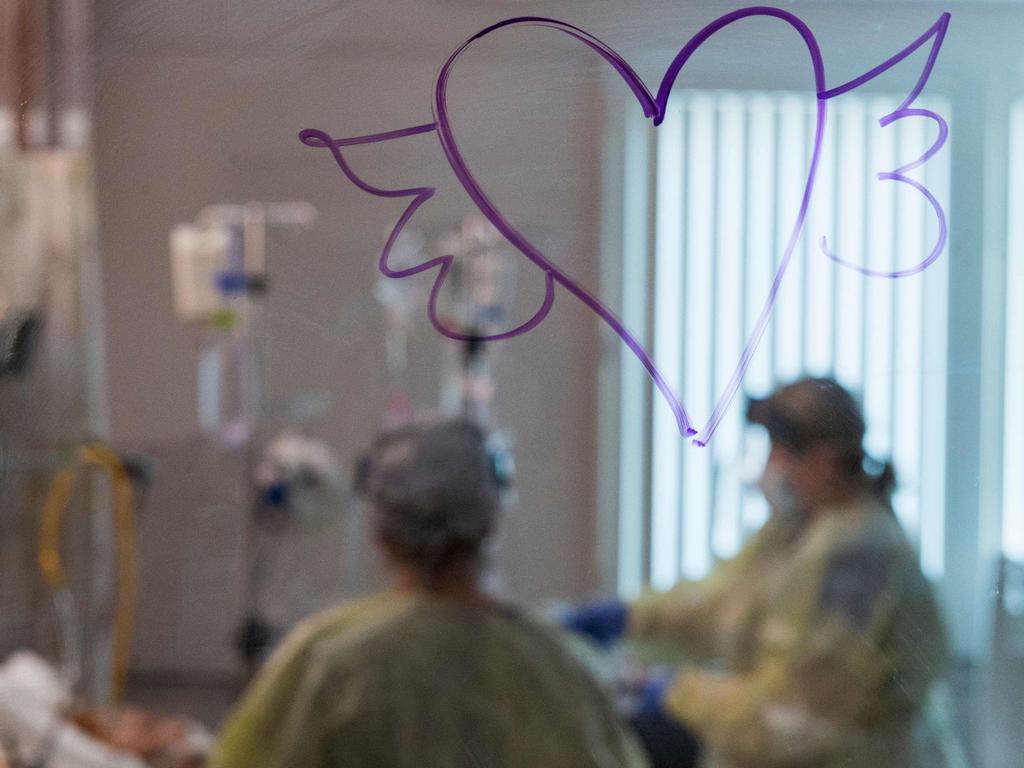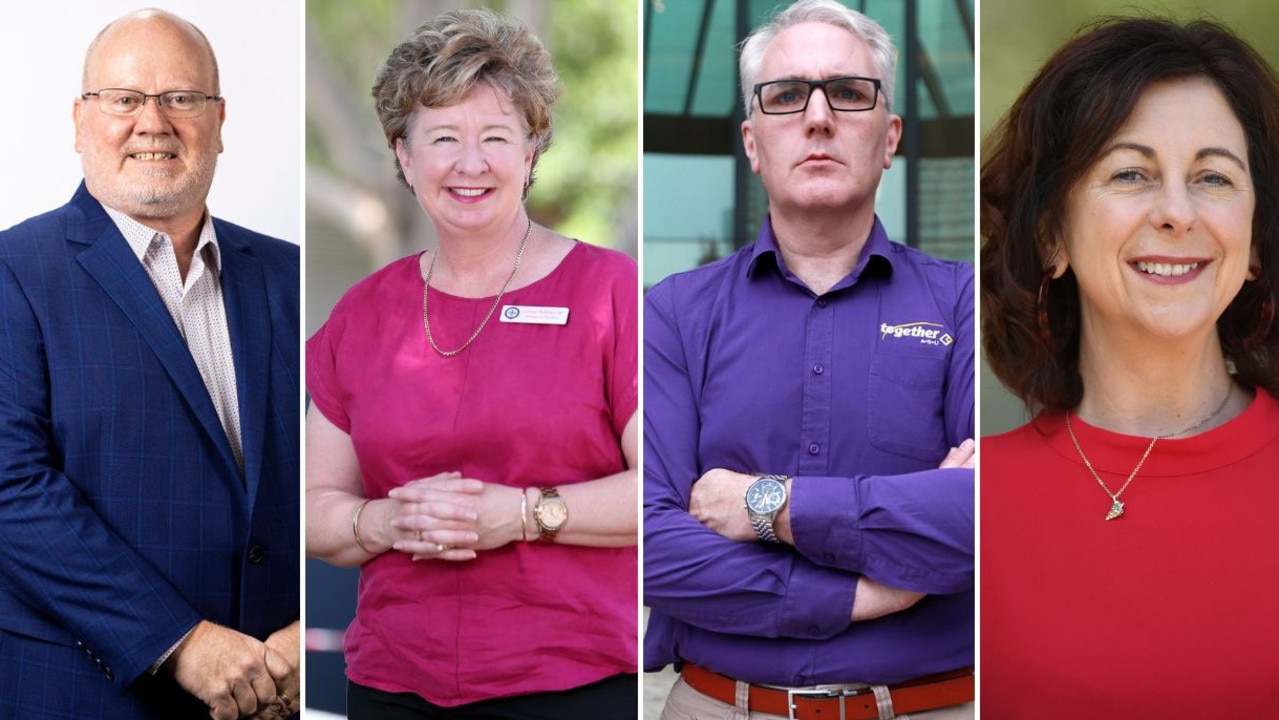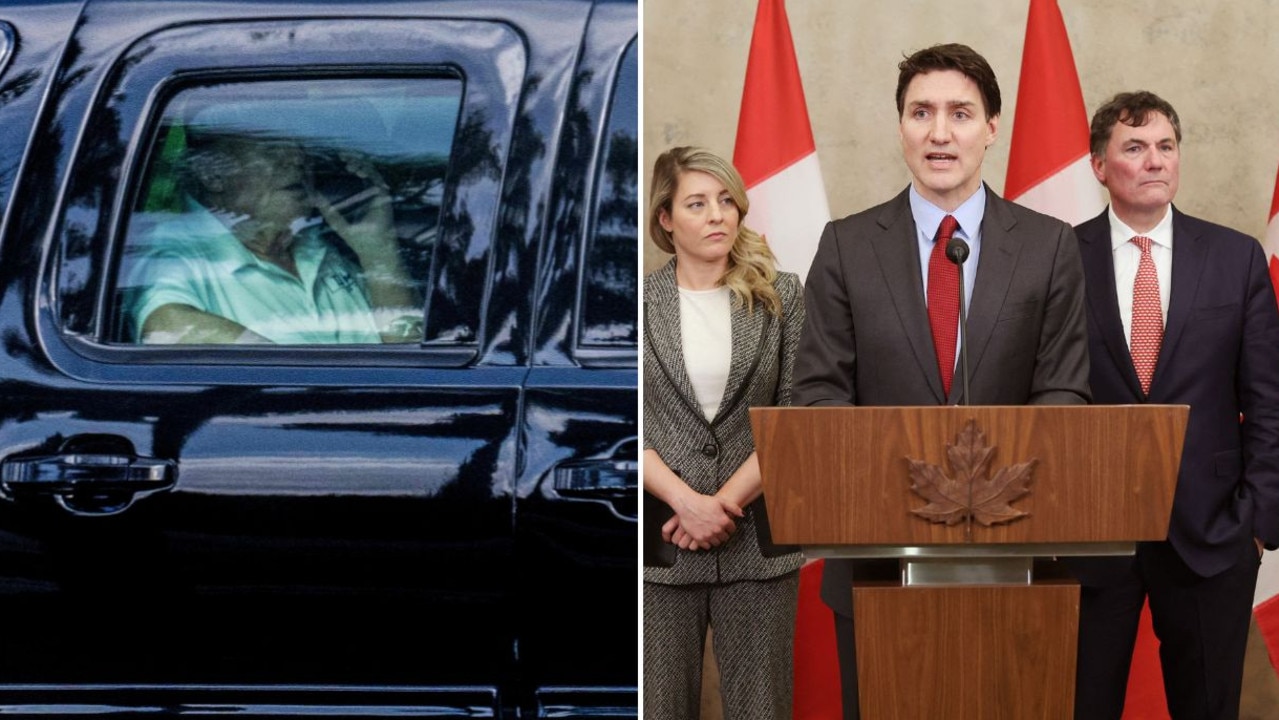Rebel WA splits from national cabinet amid health system fears
WA Premier Mark McGowan has broken away from the four-stage Covid-19 reopening plan and declared he would not ‘deliberately infect our citizens’.
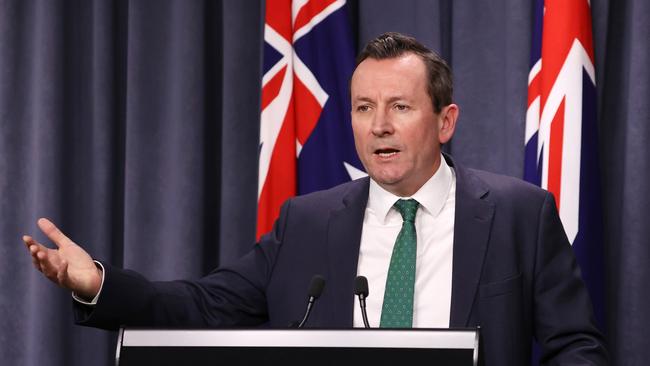
National cabinet has moved to bolster state and territory health systems when Australia hits 80 per cent vaccine coverage, as West Australian Premier Mark McGowan broke away from the four-stage reopening plan and declared he would not “deliberately infect our citizens”.
With the NSW hospital system struggling to cope with surging Covid-19 infections and increasing hospitalisations, there are rising fears that public health systems could be stretched if the national cabinet plan was rushed.
A new taskforce, led by senior health officials from all jurisdictions, will report to national cabinet next Friday on public hospital and health system capacity, the support role of private hospitals and workforce management when frontline staff are forced to isolate.
Updated modelling presented by Doherty Institute professor Jodie McVernon, showed that under the three case scenarios modelled, as revealed by The Australian, there would be no need to change the national plan to end lockdowns at 80 per cent vaccination rate, even if Covid-19 cases were in the thousands.
It did, however, say that, at 70 per cent vaccination, some level of public health orders would be appropriate but would be favoured toward localised and targeted restriction as opposed to statewide lockdowns. But from that point, a gradual easing of restrictions would begin before a complete opening at 80 per cent.
Scott Morrison said that when Australia achieved 70 and 80 per cent vaccine coverage and moved out of the suppression phase, ongoing Covid-19 measures would be needed as the nation transitioned from harsh restrictions and lockdowns. The Prime Minister – who held a pre-national cabinet briefing in his office with senior advisers including chief medical officer Paul Kelly, Health Department secretary Brendan Murphy and vaccine co-ordinator John Frewen – said the reopening plan must support a cautious return to normal life.
“It’s about opening safely. It’s about opening smartly. It’s about opening in a way that is phased,” Mr Morrison said. “It all doesn’t happen on one day. It happens in Phase B, which is what I’d call a very soft, careful opening. And our task now is to ensure we get those careful settings, because I agree with the Doherty Institute that we have to be careful in 70 to 80 per cent. It’s a soft opening period, not a big opening period.”
The Doherty Institute will continue updating its scenarios and finalise new modelling on “optimisation of the public health measures and managing outbreak responses and scenarios to support vulnerable cohorts and areas with low vaccination uptake”.
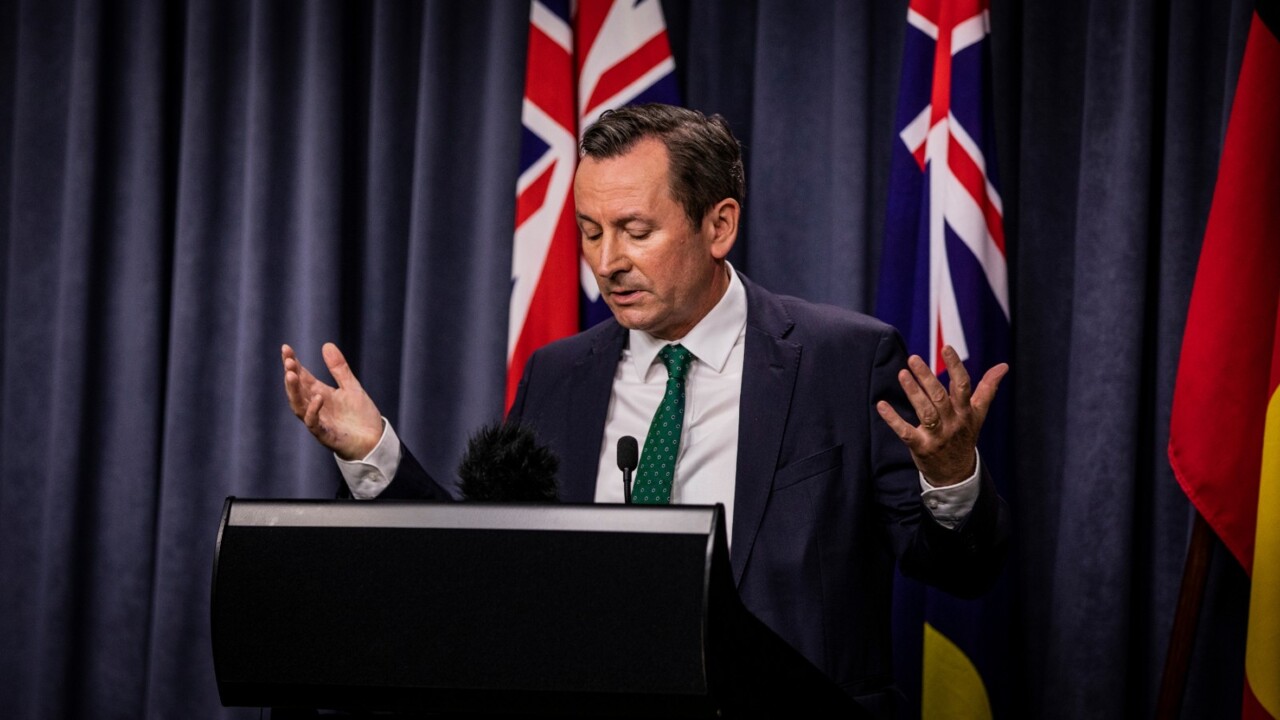
Health data presented to national cabinet revealed that Western Australia and South Australia were the most vulnerable to virus outbreaks because their vaccination rates remained low.
Modelling presented to state and territory leaders analysed the effective reproduction rate of the virus, taking into account Covid-19 restrictions and levels of vaccination. It showed the ACT and NSW, which have lockdowns in place and high vaccine take-up, had rates of 0.86 and 1.03 respectively. WA had a rate of 3.09, followed by South Australia on 2.45.
After announcing that two NSW truck drivers had entered WA and then learned they had tested positive to Covid-19 before crossing the border, Mr McGowan said the state wouldn’t open up to the country even if it remained Covid-free when it reached the 70 per cent vaccination threshold.
Following heated exchanges in the national cabinet meeting, Mr McGowan said there would still be one million unvaccinated West Australians at that stage and he would not risk their health.
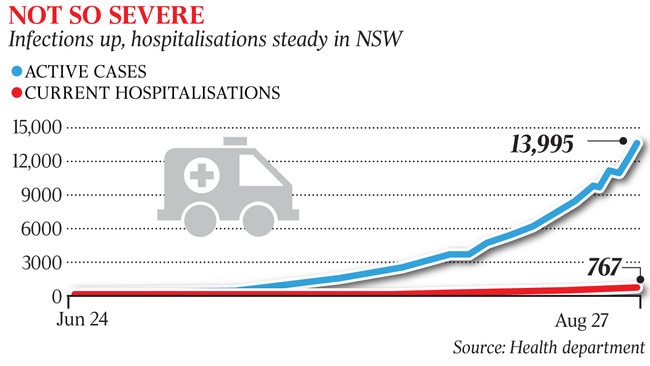
“That’s the problem that jurisdictions that have no Covid face, and I raised that point today,” he said. “The idea that we just deliberately infect our citizens, if we have no Covid when we get to 70 per cent two-dose vaccination, I just can’t do.
“People would die and we would have huge dislocation. It’s different for other states that have Covid-positive people.”
Mr McGowan’s recommitment to keeping WA’s borders closed even when vaccination milestones are reached is a setback to Mr Morrison’s plans to reconnect the country.
The Premier defended vaccination rates in WA, which lag those of other states, noting that the state had agreed for additional doses to be prioritised for NSW.
“We haven’t had the additional supply,” he said. “I know we are getting attacked by people, the federal treasurer (Josh Frydenberg) has launched a bit of a spray today, but we didn’t get the additional supply that NSW got.
“Frankly it’s pretty unfair to be attacking a state that didn’t get additional supply for not being vaccinated at the same rate as a state that did. Once we get additional supply, we will roll it out.”
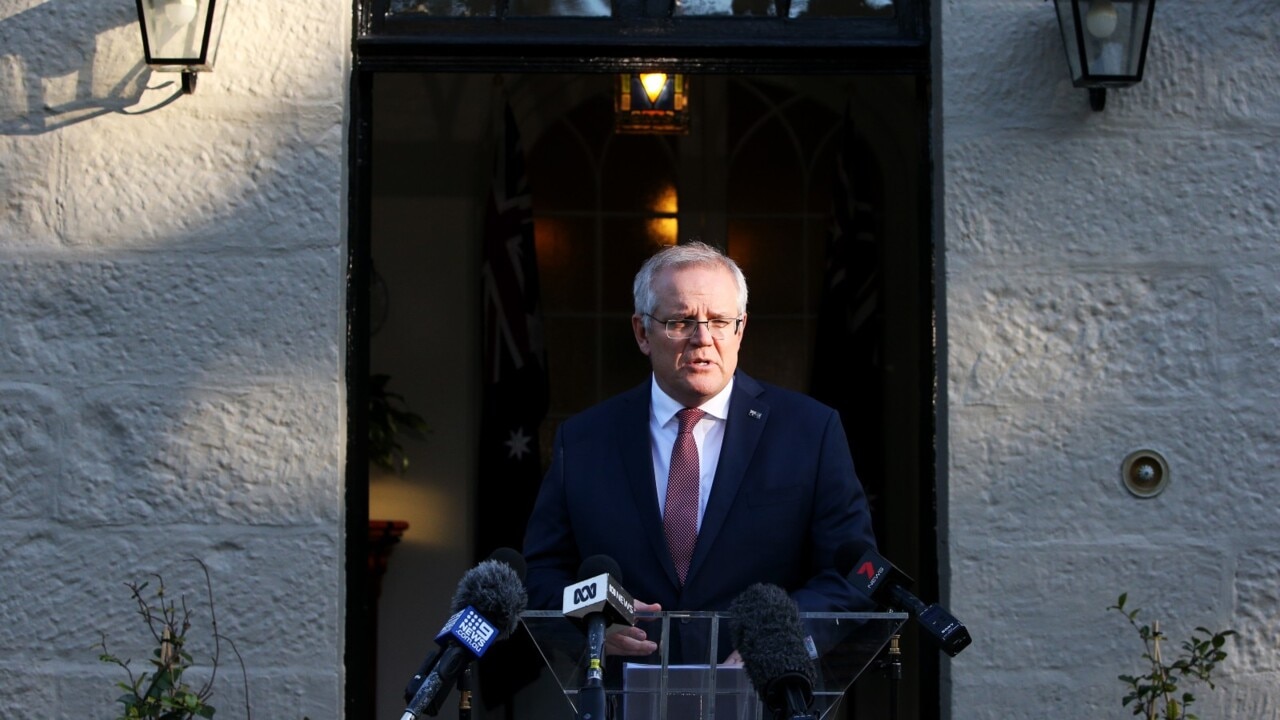
Mr McGowan also announced that WA would send 260,000 N95 masks to support the NSW Delta outbreak crisis.
“It’s clear we need a national plan to assist if and when things get worse in NSW,” he said. “I raised that again at national cabinet today. It’s the compassionate, sensible thing to do.”
The national cabinet endorsed a plan to begin administering vaccines to children aged 12 to 15 from September 13 after the Australian Technical Advisory Group on Immunisation rubber-stamped jabs for teenagers on Friday.
Some states and territories argued that younger children should be included in the overall vaccination pool, which is currently 16 and over. Vaccination data for high school students will be included in public reporting.
Mr Morrison said that, under the second and third stages of the plan, baseline restrictions and “common sense” were required to protect Australians from the virus.
“But that doesn’t mean lockdowns,” he said. “I’ve already said on many occasions that where you have discrete communities or particularly vulnerable communities that may have very low levels of vaccination and so on, then of course, there is the actions that are available to states in those circumstances. But once you get particularly into Phase C, then you’re in a position to use those common sense measures.”
Mr Morrison said he expected the Qantas announcement that it planned to resume international flights in mid-December when vaccine rates hit 80 per cent would be an incentive for Australians to get jabbed. “Phase C of the plan enables Australians who are vaccinated to be able to leave Australia and return,” he said.



